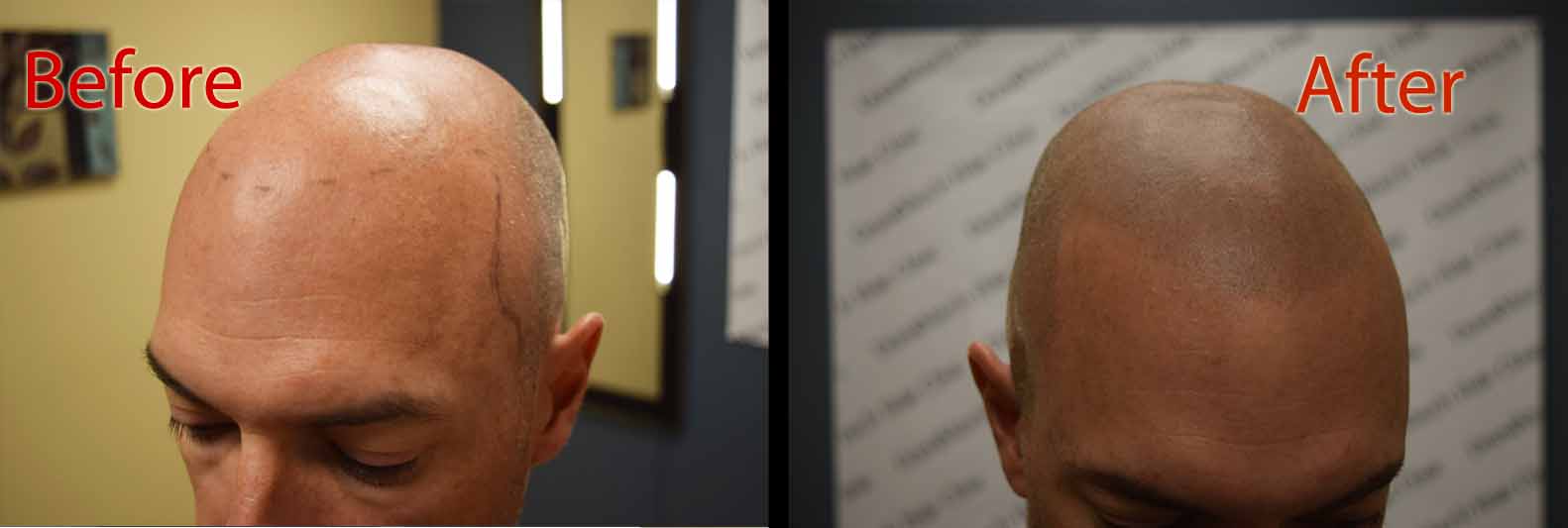Hair loss is a prevalent concern, and the allure of natural solutions like herbal remedies is understandable. However, it’s crucial to approach these claims with a critical eye, separating fact from fiction. No doubt, some herbs aid in hair growth, but they do not work in all situations and conditions. Let’s explore the scientific truth behind the claims of herbal remedies for hair loss.
Do Herbal Remedies for Hair Loss Work?
While proponents of various herbal remedies cite plants like saw palmetto, ginkgo biloba, and rosemary oil, the evidence supporting their effectiveness for hair loss is scarce and often inconclusive. Reviews in the Cochrane Database of Systematic Reviews and the International Journal of Trichology highlight the need for more robust studies before recommending these remedies.
Saw Palmetto
Native Americans have used saw palmetto for its medicinal properties for centuries. The extract from the plant’s small berries promotes hair growth by blocking the conversion of testosterone to DHT, a molecule linked to hair loss.
While some studies show promising results, with one study suggesting a hair count increase of 11.9% in half of participants after four months, more research is needed to confirm the effectiveness and safety of saw palmetto for hair loss treatment.
Ginkgo Biloba
While ginkgo biloba is sometimes touted for hair growth, the scientific evidence supporting its effectiveness is limited and inconclusive. It’s thought to potentially improve blood circulation in the scalp, which could theoretically benefit hair health.
However, more research is needed to confirm this mechanism and establish its efficacy for hair loss treatment.
Rosemary Oil
Rosemary oil is claimed to promote hair growth by potentially stimulating blood circulation in the scalp, which could deliver more nutrients to hair follicles.
Additionally, it possesses anti-inflammatory properties and acts as an antioxidant, both of which could contribute to a healthier scalp environment for hair growth.
However, research is ongoing and more studies are needed to confirm these benefits and understand the mechanisms at play.
Lavender Oil
While lavender oil is often promoted for hair growth, scientific evidence supporting this claim is limited and inconclusive. Some studies suggest it might improve scalp circulation and potentially create a healthy scalp environment for hair growth.
However, these findings are preliminary, and further research is necessary to confirm its effectiveness and understand the mechanisms involved.
Green tea
Another popular herbal remedy for hair loss, green tea is believed to be a potent weapon against hair loss. Green tea, rich in antioxidants, is sometimes linked to hair growth.
The key component, EGCG, might inhibit the activity of hormones associated with hair loss and promote hair follicle stimulation. However, evidence is mainly limited to laboratory studies and more research is needed to confirm its effectiveness in humans.
Pitfalls of Herbal Treatments
Relying solely on herbal remedies comes with several potential pitfalls:
- Inconsistency and Variability: The quality and composition of herbal products can vary significantly, impacting their efficacy and potentially raising safety concerns.
- Potential Interactions: Some herbs can interact with medications, leading to unintended consequences or reduced effectiveness of prescribed treatments.
- Underlying Causes Unaddressed: Hair loss can stem from various underlying factors like hormonal imbalances or nutritional deficiencies, which herbal remedies often fail to address.
- Limited Research on Mechanisms: The mechanisms by which most herbal remedies for hair loss supposedly promote hair growth remain poorly understood, hindering their development and evaluation.
Explore Proven Treatments
While some herbal remedies may hold some promise, the current scientific evidence is insufficient to definitively recommend them as standalone solutions. A more effective approach involves combining professional medical advice, proven treatment options, and a healthy lifestyle.
Established options like minoxidil and finasteride have strong scientific backing and demonstrably help many individuals. However, these hair loss remedies are effective as long as the treatment is on.
That’s why you may want to consider scalp micropigmentation for hair loss. SMP in Arizona isn’t a treatment for hair loss, but it can create the illusion of thicker hair for individuals experiencing baldness, thinning hair, or scarring.
It works by depositing tiny pigments into the scalp, mimicking the appearance of short hair follicles. This can offer improved confidence, a more youthful appearance, and potentially help conceal imperfections on the scalp. However, it’s important to remember it’s a cosmetic procedure and doesn’t address the underlying cause of hair loss. But it can help rebuild your self-esteem and confidence that were lost due to hair loss.
Seek professional help from SMP experts in Arizona at DermiMatch Clinic.

